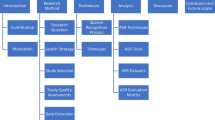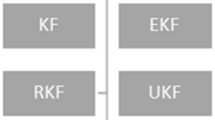Abstract
In this paper, the real-time adaptive noise canceller (ANC) system is implemented using modified sigmoid function variation based recursive least square with variable forgetting factor (MSFRLS-VFF) algorithm. The experiment is performed on DSP TMS320C6713. The performance of MSFRLS-VFF algorithm is evaluated and comparison is made with conventional RLS and affine projection algorithm (APA). In the experimental setup, the different types of noises are artificially added into the clean signals to make the signal noisy at different input SNR levels (− 5 dB to 10 dB). The result shows that MSFRLS-VFF algorithm provides superior performance than RLS and APA algorithm (the best performance achieved for SNR improvement is 2.2 dB over RLS and 2.1 dB over APA at − 5 dB input SNR with filter order 10). Also, the MSFRLS-VFF algorithm provides minimum mean square error than RLS and APA algorithms, however computational complexity of APA algorithm is less as compared to MSFRLS-VFF and RLS algorithms. The output error-free signal obtained after MATLAB simulation and from TMS320C6713 DSP shows the similar result that proves the correctness of the setup.









Similar content being viewed by others
References
Ryu, B. S., Lee, J. K., Kim, J., & Lee, C. W. (2008). Hardware implementation of an adaptive noise canceller in an automobile environment. In Advanced Packaging and Systems Symposium, Seoul (pp. 45–48).
Ryu, B. S., Lee, J. K., Kim J., & Lee C. W. (2008). The performance of an adaptive noise canceller with DSP processor. In 40th southeastern symposium on system theory, University of New Orleans, LA, USA (pp. 42–45).
Kuo, S. M., & Morgan, D. R. (1999). Active noise control: A tutorial review. In Proceedings of the IEEE (Vol. 87(6), pp. 943–973).
Kuo, S. M., Kong, X., & Gan, W. S. (2000). Applications of adaptive feedback active noise control system. IEEE Transactions on Control System Technologies, 11(2), 216–220.
Kilicarslan, A., Grossman, R. G., & Contreras-vidal, J. L. (2016). A robust adaptive denoising framework for real time artifact removal in scalp EEG measurements. Journal of Neural Engineering. https://doi.org/10.1088/1741-2560/13/2/026013.
Milani, A. A., Alderson, J., Kamath, G. D, & Lu, Y. (2016). Robust adaptive noise canceling (ANC) in a personal audio device. U S Patent 9324311
Kar, A., & Chandra, M. (2015). Performance evaluation of a new variable tap-length learning algorithm for automatic structure adaptation in linear adaptive filters. International Journal of Electronics and Communications, 69, 253–261.
Kar, A., & Chandra, M. (2015). An improved variable structure adaptive filter design and analysis for acoustic echo cancellation. Radioengineering, 24(1), 252–261.
Gupta, D. K., Gupta, V. K., & Chandra, M. (2014). Review paper on linear and nonlinear acoustic echo cancellation. In Proceedings of the 3rd international conference on frontiers of intelligent computing: Theory and applications (FICTA 2014) (Vol. 2, pp. 465–473). Springer.
Widrow, B., Glover J. R., & McCool, J. M. (1975). Adaptive noise canceling: Principles and applications. In Proceedings of IEEE (pp. 1692–1716).
Farhang-Boroujeny, B. (1999). Adaptive filters, theory and applications. New York: Wiley.
Choi, Y. S., Shin, H. C., & Song, W. J. (2006). Affine projection algorithms with adaptive regularization matrix. In IEEE acoustics, speech, and signal processing conference (IEEE 2006) (pp. 201–204).
Chassaing, R. (2002). DSP application using C and the TMS320C6x DSK. Hoboken: Wiley.
Welch, T. B., Wright, C. H. G., & Morrow, M. C. (2016). Real time digital signal processing from MATLAB to C with the TMS320C6x DSPs (3rd ed.). Boca Raton: CRC Press.
Rodriguez, A., Martinez, J. O., Avalos, J. G., & Sanchez J. C. (2016). Implementation of the error coded affine projection algorithm in the DSP TMS320C6713. In IEEE international conference on electronics, communications and computers (CONIELECOMP 2016) (pp. 7–12).
Junfeng, W. (2009). A variable forgetting factor RLS adaptive filtering algorithm. In 3rd IEEE international symposium on microwave, antenna, propagation and EMC technologies for wireless communication (pp. 1127–1130).
Leung, S. H., & So, C. F. (2005). Gradient-based variable forgetting factor RLS algorithm in time-varying environments. IEEE Transactions on Signal Processing, 53(8), 3141–3150.
Ting, Y. T., & Childers D. G. (1999). Speech analysis using the weighted recursive least squares algorithm with a variable forgetting factor. In IEEE acoustics, speech, and signal processing conference (pp. 389–392).
Leung, S. H., & So, C. F. (2001). Nonlinear RLS algorithm using variable forgetting factor in mixture noise. In IEEE acoustics, speech, and signal processing conference (pp. 3777–3780).
Gupta, V. K., Gupta, D. K., & Chandra, M. (2014). Real time noise canceller using modified sigmoid function RLS algorithm. In Proceedings of international conference on computational vision and robotic (ICCVR 2014) (pp. 63–70).
Samudravijaya, K., Rao, P. V. S., & Agrawal, S. S. (2000). Hindi speech database. In Proceedings of international conference on spoken language processing (ICSLP00), CDROM00192. Pdf.
Varga, A., Steeneken, H. J. M., & Jones, D. (1992). The noisex-92 study on the effect of the additive noise on automatic speech recognition system. Reports of NATO Research Study Group (RSG.10).
Author information
Authors and Affiliations
Corresponding author
Additional information
Publisher's Note
Springer Nature remains neutral with regard to jurisdictional claims in published maps and institutional affiliations.
Rights and permissions
About this article
Cite this article
Gupta, D.K., Gupta, V.K., Chandra, M. et al. Performance Analysis of MSFRLS-VFF Based Real-Time Adaptive Noise Canceller with RLS and APA Algorithms Using TMS320C6713 Processor. Wireless Pers Commun 106, 2113–2127 (2019). https://doi.org/10.1007/s11277-018-5929-5
Published:
Issue Date:
DOI: https://doi.org/10.1007/s11277-018-5929-5




